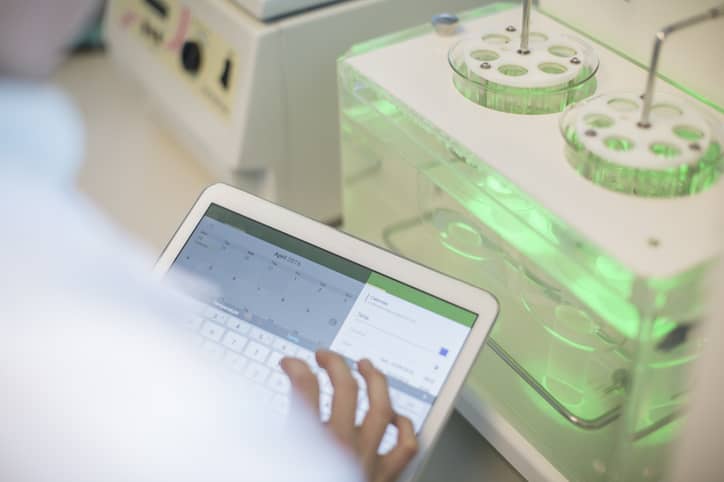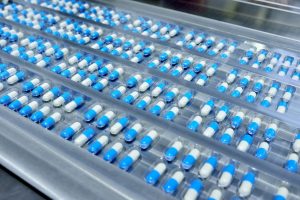While almost all industries deal with data, many of them in large quantities, there may not be any that deal with more than the healthcare industry. Between patients’ files, insurance paperwork and new techniques and methodologies being generated daily, the sheer volume of data being collected can be overwhelming. Enter the healthcare data scientist.
Through the use of big data processing software and the skills to use it effectively, healthcare data scientists can manage the huge volumes of data being collected and presented to those who need it in smaller, more easily understood pieces. Furthermore, they can sort the data into categories so that the correct information is sent only to the appropriate individuals or departments.
In this way, healthcare data scientists allow for more streamlined processes that enable more efficient and effective care
The Role of Data Science in Healthcare
The role of any data scientist, regardless of what type of data they manage, is to collect, collate and report on data. In healthcare, these functions are particularly important, not only to the individual doctors and patients, but also to the health and welfare of communities, nations, and the world as a whole.
The recent pandemic provides plenty of examples of how essential the role of data science in healthcare truly is. On a global level, data analysis revealed patterns and trends, allowing for predictions as to where the next wave would hit and how best to counter it.
On the national level, data analysis could predict the onset of the illness and its journey across the country. The ability to do this made it possible to send resources to the areas in greatest need before the system was overburdened.
On the local level, analysis of healthcare data revealed areas and activities that presented the highest risk of spreading the infection and those that offered the most protection from infection.
The role of data science in healthcare is likely going to increase in importance as more and more patients, providers, pharmaceutical companies and governments rely on this data to improve health and welfare.
What Is a Healthcare Data Scientist?
A health data scientist is a data analyst that specializes in managing the types of information collected from patients, healthcare providers, medical researchers and government agencies that are involved with healthcare. These data scientists play a vital role in the dissemination of information, on a small scale, as in the transfer of information about a single patient between their various doctors, on a grand scale, as in the sharing of information about a new illness across the globe, and everything in between.
It is their job to make use of big data software to determine which bits of information are relevant, how to sort the remaining data into appropriate bundles, and who should receive which packets of information.
What Does a Healthcare Data Scientist Do?
Healthcare data scientists work with software to manage large volumes of information. To do this they must be, technologically savvy, have a strong understanding of probability and statistics, and know how the data they will be managing fits into the different aspects of the healthcare industry. It is also helpful if they are logical thinkers and genuinely interested in problem-solving.
Healthcare data scientists’ responsibilities include:
- Data management – taking huge volumes of data and compressing and sorting it into smaller packets based on relevance to each other
- Creation of Reports and Dashboards – presenting data to those who need it quickly and in clear, concise ways
- Dissemination of Data – sending reports and data packets to the appropriate individuals or teams for further analysis or immediate use
- Understanding the role of the data – the purpose it serves, and how it fits into the goals of the agency or organization for whom they are analyzing data
- Management of the database itself – efficiently locating and retrieving required data from the storage facility and constantly be on the alert for incursions or attempts to breach the cybersecurity
Healthcare Data Scientist Salary Information
According to Glassdoor, the average salary for those working in health data science in the United States is $116,744 annually. The lowest salary they list, for an entry-level position, is $84,587 per year, and the highest listed salary is $161,127 per year.
These numbers were generated from survey responses in different locations scattered across the United States. For more accurate and specific information, you should run a search for the average salaries of healthcare data scientists in your location.
Job Outlook for Data Scientists in Healthcare
The need for data scientists in healthcare is likely to continue to grow at a rapid pace. Newer technology and treatment methods will make the need for accurate and rapid dissemination of data even more important. Also, the aging of the American population and the increased globalization of medicine will continue to increase the demand for medical care.
According to the Bureau of Labor Statistics (BLS), the overall demand for data scientists is predicted to grow by 31% over the next ten years, with nearly 20,000 new positions being added yearly. This is a much higher rate of growth than the average career, which is expected to be about 9% for the same period.
The BLS does not list the position of healthcare data scientist specifically, nor does it break the data given down into geographical regions. For the most accurate information about the future of healthcare data science in your area, contact local healthcare facilities or schools that offer classes on the subject.
How to Become a Healthcare Data Scientist
For most successful candidates, the path to becoming a healthcare data scientist involves a combination of education and experience. While some schools now offer degrees that specialize in healthcare data management, like the Masters in Health Informatics available from USF Health, most individuals who enter this field start with more generalized Bachelor’s degrees in IT, computer science, or math followed by a Master’s degree in data management or a related field.
The most effective way to transition from generalized data management to a specialized focus on healthcare, either for new graduates or those who have experience in the field, is to gain experience in the healthcare sector. This might take the form of internships or lower-salary jobs that give you the chance to learn the specifics of healthcare data management.
The field of healthcare data science is growing at a rapid rate, and will likely continue to do so. If you are looking for a career that not only makes use of your problem-solving abilities, your technological savvy, and your desire to help others, all while paying you a more than livable salary, then the field of healthcare data science may be the right fit for you.
*National long-term projections may not reflect local and/or short-term economic or job conditions, and do not guarantee actual job growth. Information provided is not intended to represent a complete list of hiring companies or job titles, and program options do not guarantee career or salary outcomes. Students should conduct independent research for specific employment information.




